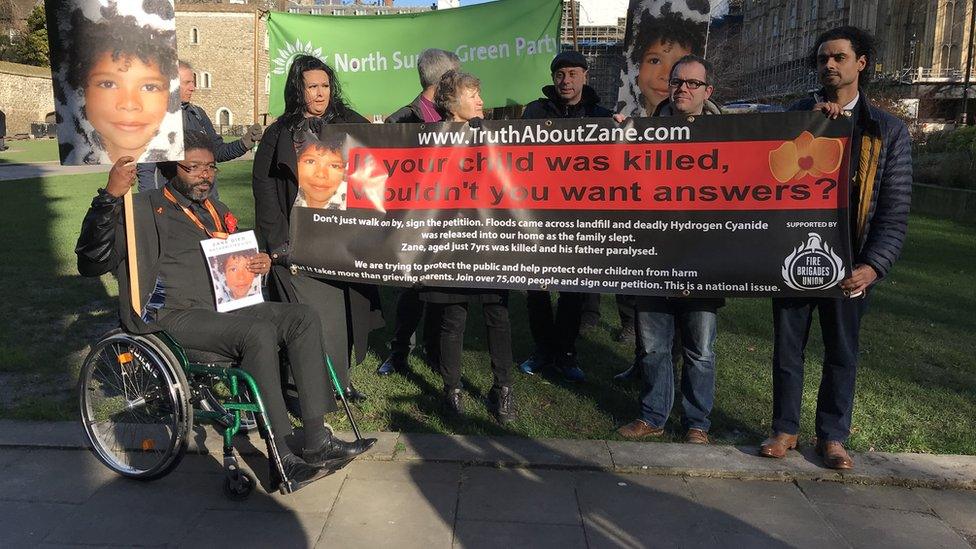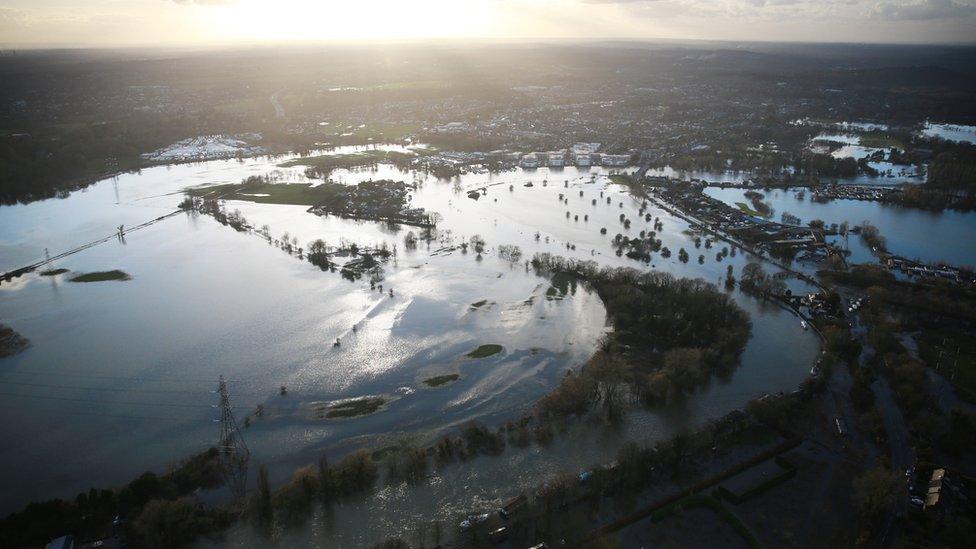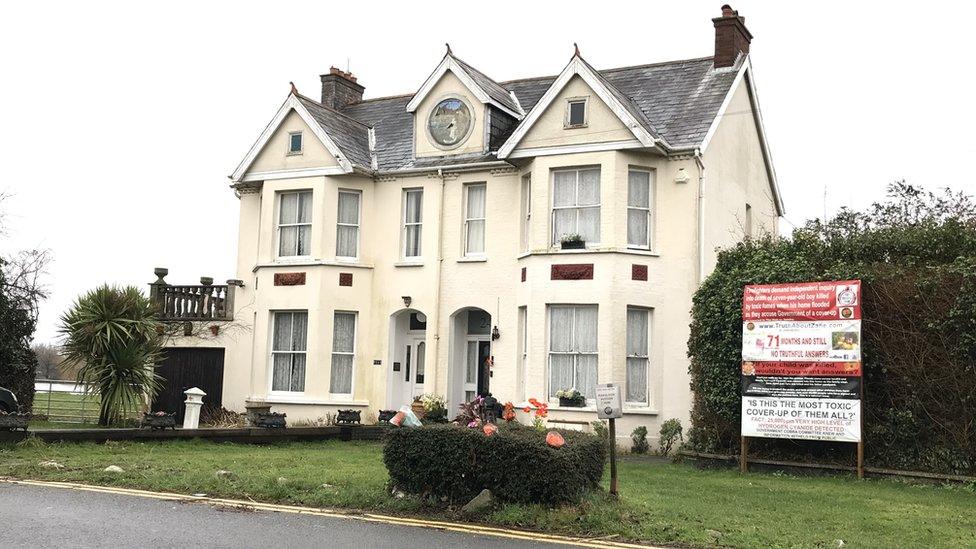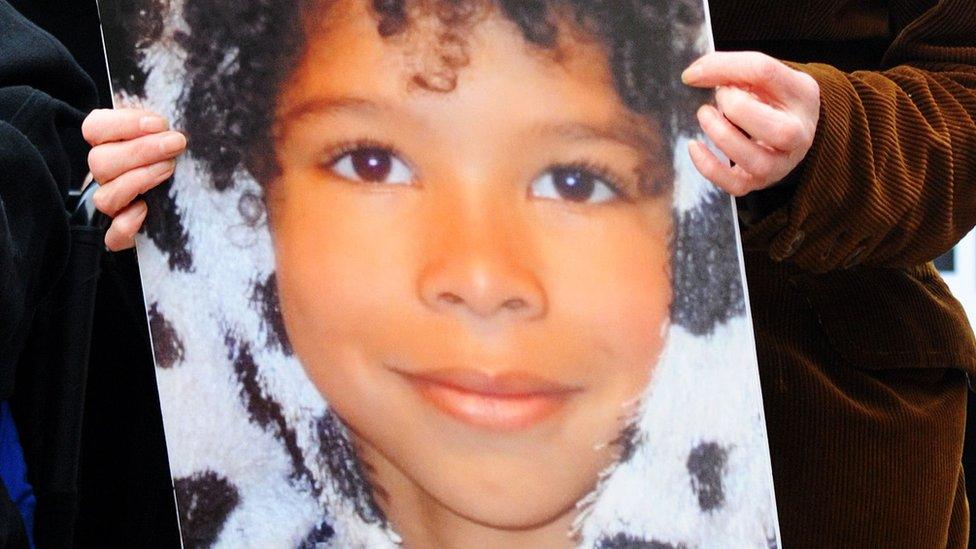Zane Gbangbola: Council fears over flood death land
- Published

Zane Gbangbola died at his family home in Chertsey during severe flooding
Concerns that land behind a house where a seven-year-old boy died in 2014 could be unsafe have been raised by councillors in Surrey.
Spelthorne Borough Council is carrying out preparatory work amid plans to investigate the land in Chertsey.
Zane Gbangbola's parents say their son died from hydrogen cyanide washed out of a former tip during floods.
Councillor Ian Beardsmore said the council had a duty of care and there were "too many doubts" over the site.
The Independent chair of the environment committee said several other people were taken to hospital on the night Zane died, but he could not say more because their medical records were confidential.
He said: "We are actually not saying that this site is contaminated. What we are saying is that we have serious doubts about whether it's contaminated or not."
But he said: "I would not want to go and live along there. It's a very nice piece of river, it's a very nice house, but no, I would not want to and particularly if I had a young family I would be even more petrified."

Zane's parents (left) and campaigners gathered at Westminster last year
Zane's parents, Kye Gbangbola and Nicole Lawler, dispute inquest findings from 2016 that their son died from carbon monoxide from a pump used to clear flood water.
They have always said the pump was not in use.
Conservative councillor Nick Gething described the cyanide claim as "improbable" and the coroner's report "sound", adding: "Unfortunately now I don't think there is anything that can be achieved."
However, Lib Dem councillor Kathy Grant said if there were any doubts, the land should be investigated "not just for the sake of Zane's family but for other people living nearby, now or in the future".

Chertsey was hit by devastating floods in 2014
In other developments, councillor Olivia Rybinski, from the United Spelthorne Group, asked if an Esso fuel pipeline had been diverted around the landfill site and whether information could be requested from Esso.
Councillors heard the Environment Agency had provided the authority with data it received for land north of the M3, near Zane's house, which was checked for "a suite of chemicals which may include cyanide".
Members also heard the council was to make an application to view Ministry of Defence (MoD) archives after claims were made to the BBC last year about contamination linked to a former tank research base five miles from the house.
The MoD said it had not yet received any request from the council, but if one was received it would "naturally take it very seriously".

Follow BBC South East on Facebook, external, on Twitter, external, and on Instagram, external. Send your story ideas to southeasttoday@bbc.co.uk
- Published3 November 2021

- Published15 September 2021

- Published6 August 2020

- Published24 February 2020

- Published12 February 2020

- Published11 October 2019

- Published11 July 2017
